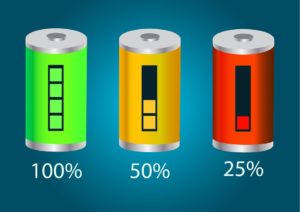WI-FI VS 4G: Which Consumes More Battery?
Modern technology has presented us with tools and accessories that can make our lives easier. The continuous rise in people using objects such as mobile devices and computers in their daily lives proves that there’s no going back and the future of technology is in our bare hands.
One thing that makes cellular phones, laptops, and tablets reliable is you can bring them almost anywhere. The easy access for these gadgets make it very popular among the younger generations, and its mobility and reliability are what makes it appealing to the working-class generation.
But there’s one thing that makes all these gadgets similar to one another, and that is their battery life.

The battery has been a crucial factor in making a gadget portable and has been the subject of a lot of enhancement to make it last longer. In fact, a lot of applications have been developed and programmed with a promise to save on battery consumption.
However, as much as we try to conserve our gadget’s battery, there are some applications that require a lot of power and one great example of this is our Internet connection.
A huge factor of our battery’s consumption is due to the type of internet connection we used in our gadget.
The 2 Types of Internet Connection
There are 2 types of Internet connection available in almost all mobile phones, the Data connection, and the Wireless Connection.
- Data Connection – is a type of connection where you can create your own Virtual Private Network (VPN). This can either be 4G or 3G. The main signal is coming from the main server that is distributed to your mobile phones packet.
- Wireless Connection – or known as the Wi-Fi connection. This type of connection is usually set on public and the signal is coming from a broadband service.
The difference between the 2 is in data connection, you can establish your own private network wherever you are, unlike in a Wi-Fi where the connection is depended on how strong the broadband signal is or how far is the allowable range.
Which one Consumes more Battery?
Both consumes a large portion of your battery but which one consumes more depended on the quality or strength of the forward link. Whichever gives out a poor or low-quality signal requires the higher battery consumption.
For example, if the main tower where your data signal is coming from becomes too weak to give a stable connection, then your mobile phone’s reaction is to increase its transmitter power to keep up with the weak connection. The same works with your Wi-Fi connection.
However, Wi-Fi connection tends to be more stable when it comes to connection. If you’re outside and using data, you’ll notice that it can sometimes get 3G or 4G whereas Wi-Fi at home gives you the constant same speed.
To keep it simple, a slow internet connection means more battery consumption whichever type.
Tips to Save and Monitor Battery Consumption
- If you have a wireless connection and mostly at home, then Wi-Fi is the recommended type of connection. Data can give out the unstable connection that will cause too much battery consumption.
- Use the newest Wi-Fi technology such as 802.11ac. It is best to have a wireless router like this at your home or your office.
- Always check for open apps on your phone or tablet and close it. Running apps in the background also use up battery power. Although some app says it can help you conserve power, by downloading, opt out since the only thing it can help you is close your app, something your phone can do.
- Make it a habit to check which app consumes more of your battery, some phones have battery analyzer which helps you see apps running in the background and unused apps.
Wrap Up
There’s really no way to know which one consumes more battery, your Wi-Fi or 4G, but you can always do something to conserve your battery by doing some of the tips listed above.
About the Author David
An engineer passionate in networking, coding and several sports
